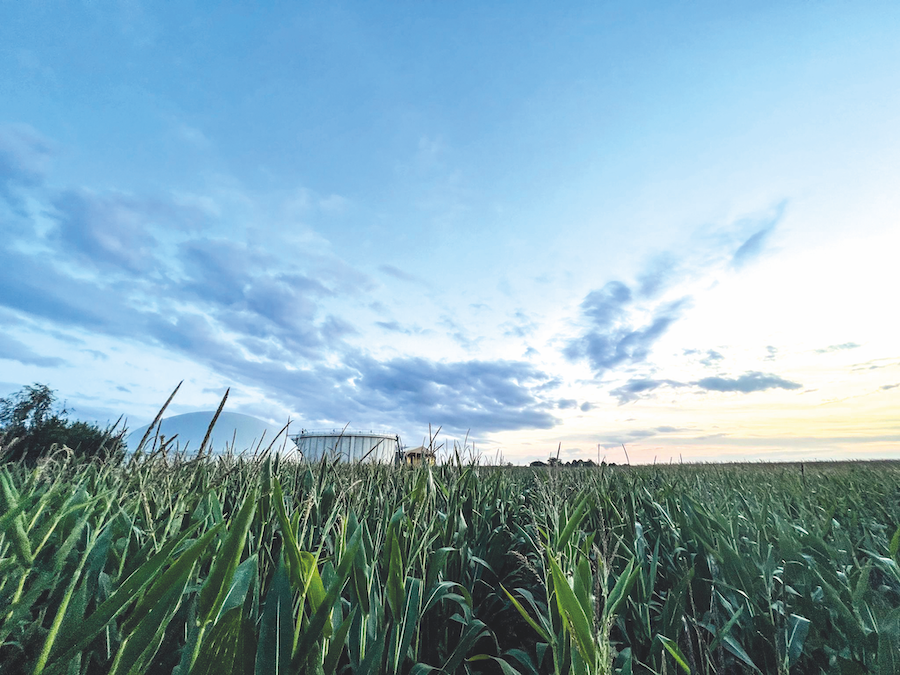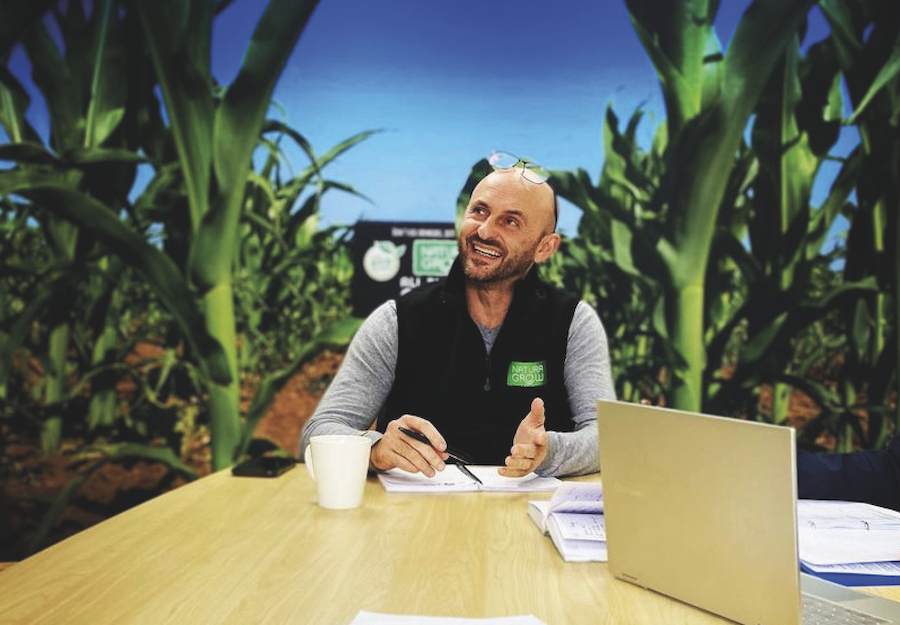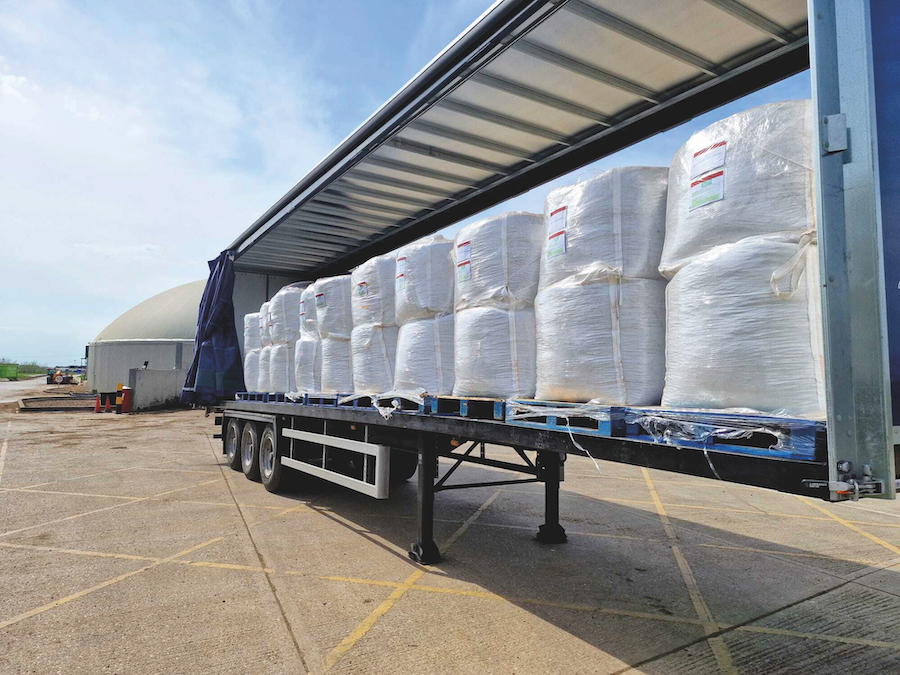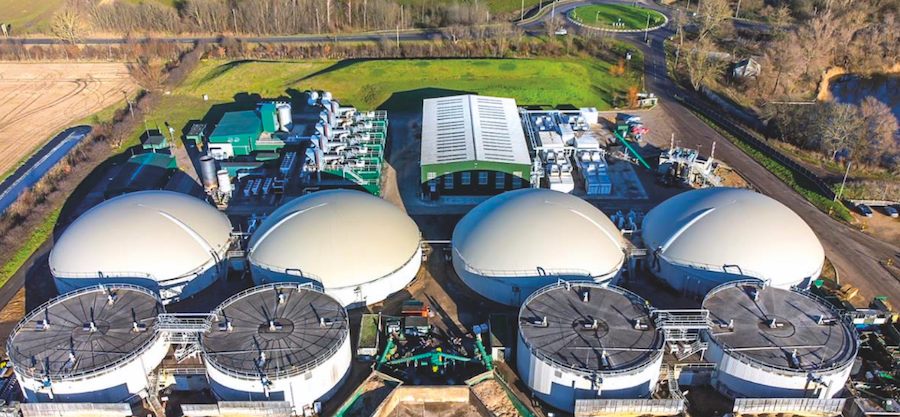“Unique” plant-based organic fertiliser is a win for soil health
26th November 2023
As UK growers increasingly look for alternatives to conventional fertilisers, deputy editor Sarah Kidby spoke to Jason Colin of Natura Grow, to learn about a unique plant-based fertiliser that is gaining traction on vineyards and orchards in the UK.

Cambridgeshire maize grower and renewable energy provider Pretoria Bio spans 25,000 acres across two sites near Ely. It sows, grows, and harvests energy crops to be fed into its anaerobic digesters – the largest in the UK – to produce around 12.5MW per hour of gas and electricity for the National Grid. The business was originally conceived in 2012 with the aim of supplying renewable energy from sustainable biomasses. It now powers just under 300,000 homes.
As an added benefit, a by-product of the process goes on to make Natura Grow – a slow-release fertiliser and soil conditioner which contains macro and micronutrients, plus beneficial bacteria to help plants resist disease. To produce the pellets, the fibres are squeezed to remove the liquid, put through a dryer and pelleted for easier transport.

The organic, bio-active pellets – which national account sales manager Jason Colin says are “completely unique” – are simply added to the soil where they rehydrate and expand, aerating the soil, improving structure and allowing water and nutrients to penetrate the root systems of plants.
Since launching around two years ago, the pellets have proved particularly popular with UK vineyards, capturing about 15% of the vineyard market, Jason says. Early adopters say the product is clean and easy to apply, with no dust or mess, and soil, petal and leaf testing has all shown it compares well to conventional fertilisers. Plus, it has the added benefit of improved soil fertility.
The company is now in its second year supplying vineyards and orchards with repeat orders and is starting to receive orders for 2024. Verified by the Soil Association to be used in organic applications, Natura Grow was recently runner up for the sustainability award at the Four Oaks Trade Show in September.
“Souped up” pellet
The business also offers Natura Grow Pro, a “souped up” version of the pellet which came out this year and is being used on vineyards as a premium product.
It fuses together a naturally occurring silicon-based humic substance with the biostimulant properties of the pellet. This increases the absorption and assimilation efficiencies of selenium, cobalt, zinc and other essential nutrients. Pro contains an array of biological nutrients for essential nourishment to maintain and increase indigenous soil life and growth, according to the company. It increases crop health with greater tolerance for biotic and abiotic stresses whilst maintaining greater crop quality and optimised yields. It could be expanded to suit a range of different crops in the future, Jason comments.
A liquid version of the product is also available, though this is more for the retail sector as the fibre content means it’s not currently suited to the fine nozzles of irrigation systems. However, it is used as a drench on the company’s own farm and others in Cambridge, particularly for maize and potatoes, to get the soil right.

A race for alternatives
With fertiliser costs remaining very high, combined with the increased focus on soil health and farming in tandem with nature, there seems to be a “race for alternatives”, Jason says.
Foreseeing this scenario, the owner of Pretoria Bio invested in the £2 million pelleting plant around three years ago.
Jason was previously a grower for 16 years in South Africa and the UK, predominantly ornamentals, such as bedding plants, perennials and shrubs. He explains: “We’ve found that growers are looking for alternatives to conventional fertilisers, and not just because of the price but also because of soil fertility.
“A lot of farmers are understanding now that you can throw on all your compound chemicals and the plant will do great, but it does nothing for the soil and you’ve just got to replenish that all the time. You’re degrading the quality of the soil and then you get a chemical lock which the plants can’t get hold of because it’s all synthetic.”
He adds: “On our side with the organics, the pellets revitalise and bring fertility to the soil, unlocking the nutrients that are already there, providing additional nutrients and making it more available to the plant. There’s less cause to use pesticides and fungicides because the plant is looking after itself like nature intended.”

Lowering carbon footprints
As well as the benefits for soil health and the environment from a grower perspective, the company’s own carbon footprint is a focus. Nothing is imported – all crops are grown, harvested and processed at its site in Cambridgeshire. Heat generated through the process is used to dry the residues of the biomass following digestion.
The production process removes carbon dioxide from the atmosphere and retains it within the biomass, which is used as the feed stock to fuel the power plants.
Currently carbon neutral, the company is set to become carbon negative in a year’s time. The CO2 that is released through the production of gas and electricity is currently offset but the business is in talks with bottling plants to sell it on to them.
